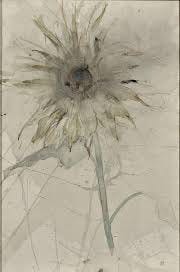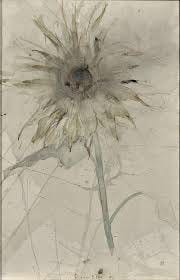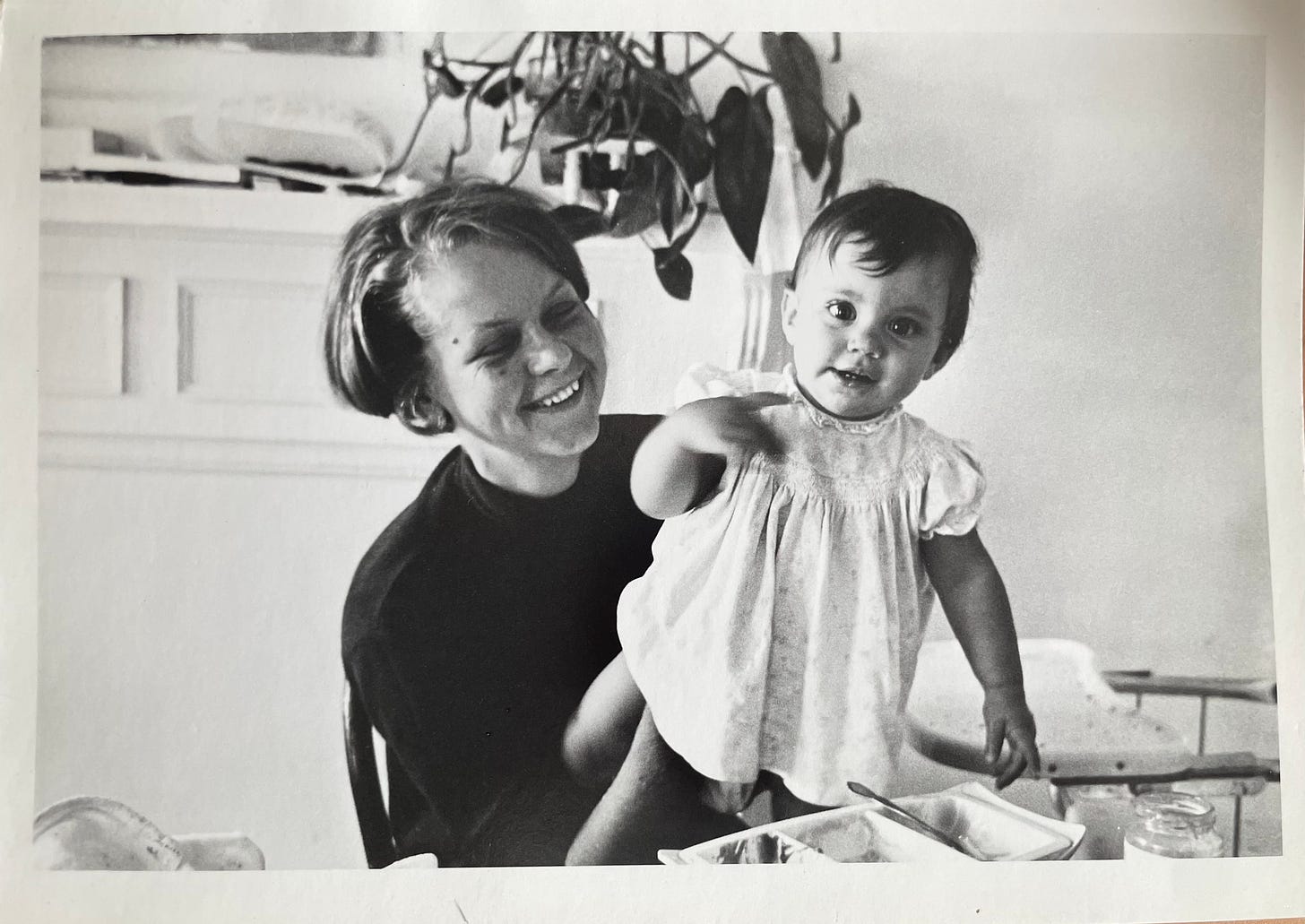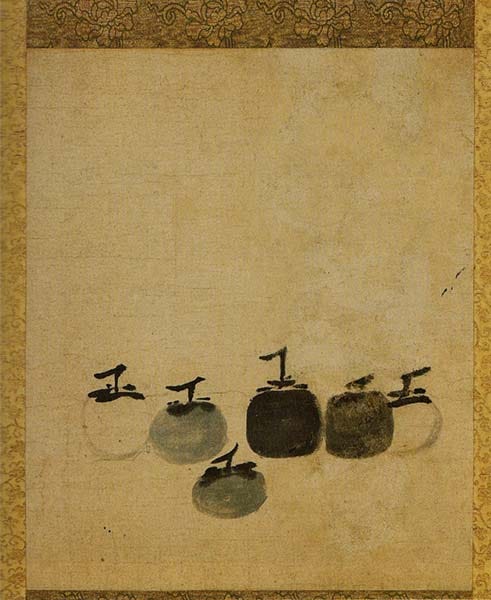Two Houses is a newsletter of stories about art, feminism, grief, and Time excavated from the Soho loft where I grew up. Posts are free and illustrated with the work of my long-divorced parents, the painters Mimi Weisbord and Lennart Anderson.
My mother left breadcrumbs to a past where it seems everyone was an artist. Digging in her loft, I found among her art books a small catalog of work by Dorothea von Elbe. Dorothea was my babysitter.
For a brief time in the late 60s, Dorothea rented the basement apartment in our brownstone in Brooklyn. I did not know she was an artist. (Now I believe she studied with my father.)
Online, I find Dorothea in Spain in 2018, standing with a large painting in the Rafael Ortiz Gallery in Córdoba. She’s radiating joy, looking exactly as I remember her.
I didn’t know she was an artist, yet I see how her work fits her, drawn from simplicity and nature. I retain no specific memories of Dorothea, but in my mind, she is all love, sunlight, and air.
Her paintings suggest pressed ferns, leaves, and flowers. They evoke for me life and death preserved, celebrated… the translucent skin of my mother’s aged hands.
I can’t say how long it was that Dorothea took care of me. Pictures show us together when I was barely a toddler. She left long before I turned two.
How can I claim to know anything about her?
My parents adored Dorothea. Even after they separated, when my brother and I traveled between their houses, they’d brighten at the mention of her.
Their affections extended my fading memories: my mother would beam at me when her name came up, “Your Dorothea!” My father lovingly hung the paper holiday ornaments she sent to us. It didn’t matter at whose house I laid my head, I had full permission to love Dorothea. Neither had won her loyalty. By the time they separated, Dorothea had already gone.
She says online that her work reflects long hours spent in the countryside as a small child. My mother would approve. She taught her students to plumb their earliest obsessions for their art.
For me, that’s a path into the woods of my parents’ marriage and its dissolution. For Dorothea, it’s seeds and flowers.
Seeing Dorothea with her beautiful painting stirs sadness; my parents’ creative lives are over. There’s also something deeper, a buried longing.
Writing about her, a memory begins to coalesce.
I’m in our Brooklyn living room under the chandelier. The adults are gathered by the pocket doors to the staircase by the vestibule. Their attention turns toward me. They are smiling, their voices soothe.
It’s time to come say goodbye, they say. They urge me to join them.
But I don’t move. I freeze.
Now, I’m four in the same living room. And I’m throwing a fit, running through those pocket doors on our parlor floor. I’ve learned what they want from me. Acceptance of loss, acquiescence to change.
My parents are separating.
Now I see that Dorothea was my first primal loss. And how longing for her is also longing for uncomplicated love. A baby’s simple pleasure.
Last night, in a dream, Dorothea’s seeds and flowers drift into a white cereal bowl. I am poised to eat them with milk and a spoon.
When I wake, her little catalog is missing, lost in a bookcase here in Vermont.
I return to the Web to find her work and read her words. She says she admires the six persimmons. I do not know the six persimmons, so I look them up.
They are beautiful simplicity, painted by a Chinese monk in the 13th century, and reside in a Zen Buddhist temple in Japan. (They made a rare visit to the United States last fall.)
Reading about them, I feel nourished, cared for, and lucky. I’m learning about the six persimmons because of Dorothea. This is a lesson she is imparting to me more than 50 years after leaving our darkened living room. She — who once cut fruit for me to chew — has returned to feed me persimmons.
They are delicious.







Eliza, your writing is so alive and beautiful. This: “Her paintings suggest pressed ferns, leaves, and flowers. They evoke for me life and death preserved, celebrated… the translucent skin of my mother’s aged hands.” 🥰 thank you for sharing. 🙏🏼
This is beautiful, and how incredible to be able to plumb such long ago memories for continued meaning.